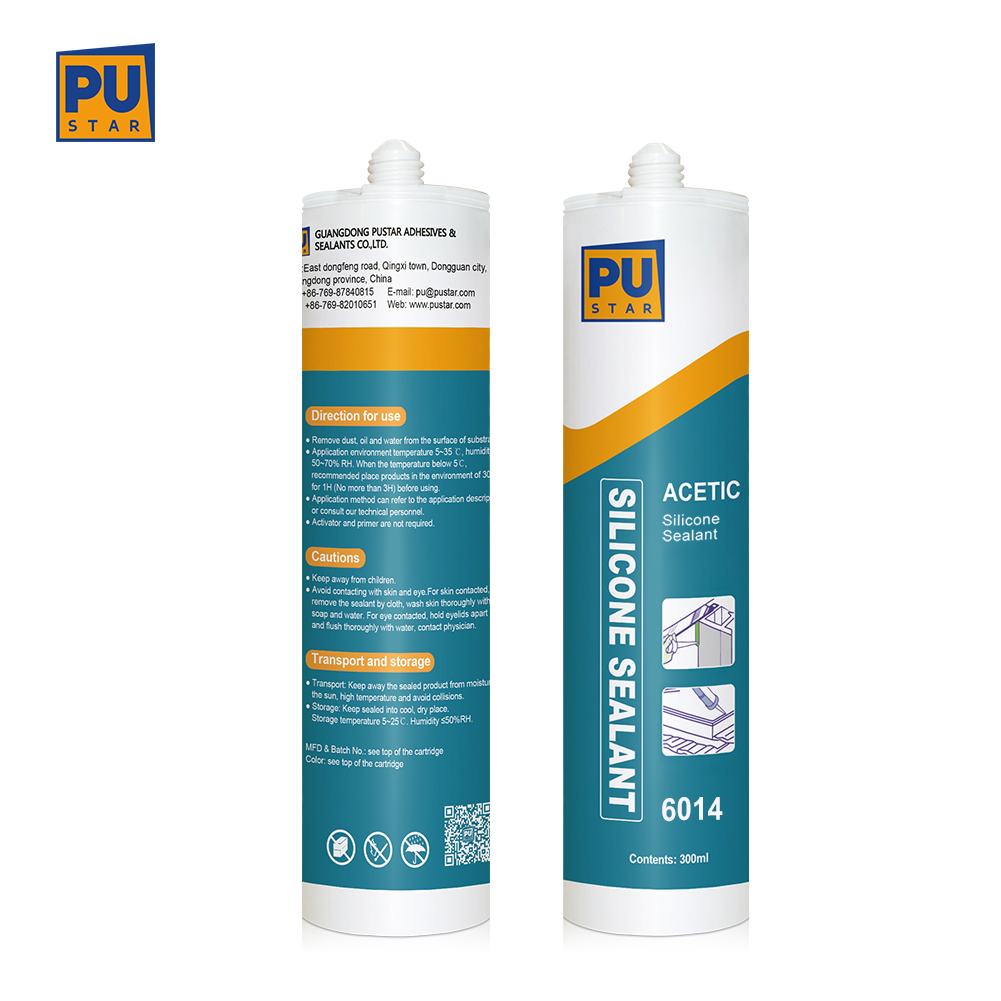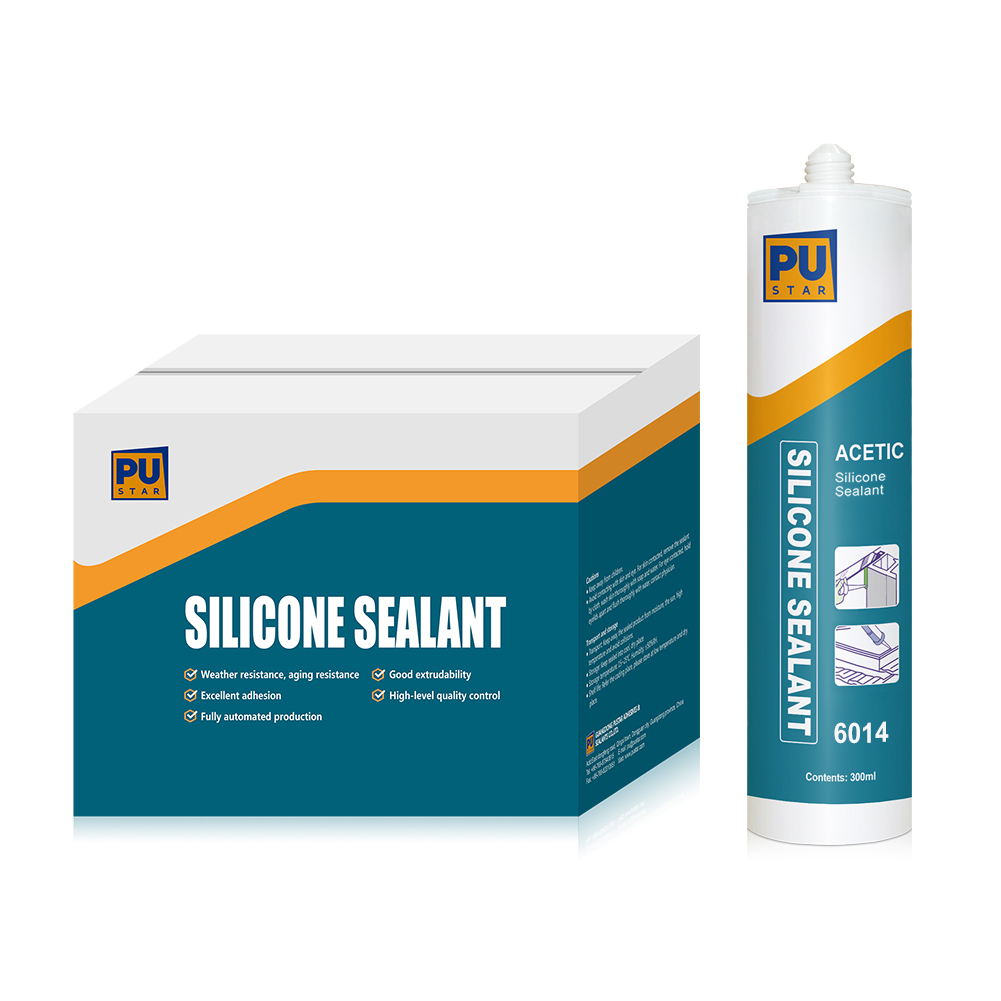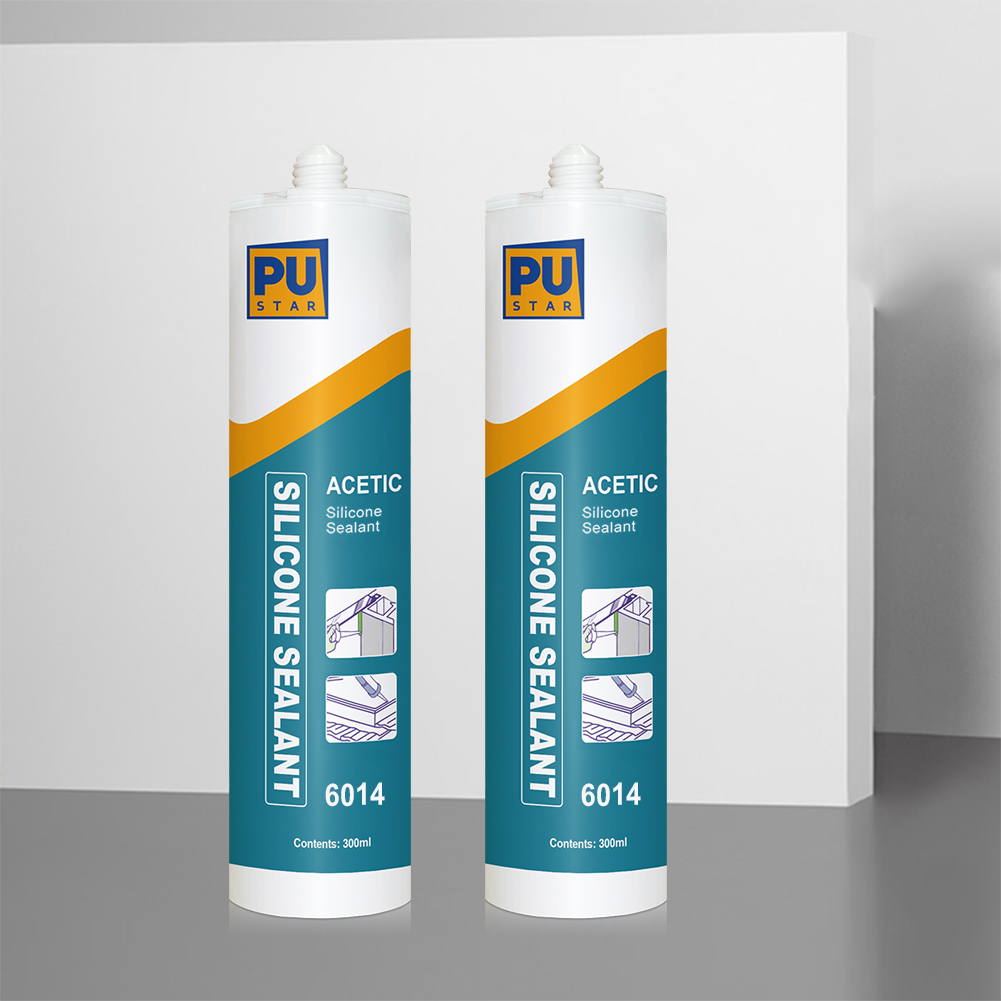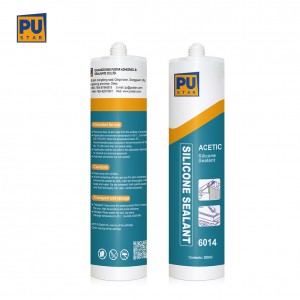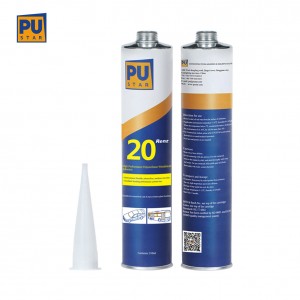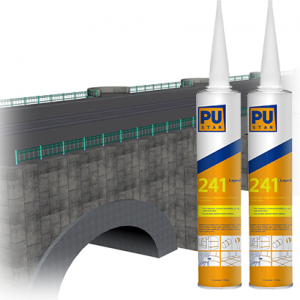Acetic Silicone Sealant 6014
Product Description
Our silicone industrial sealant offers a multitude of advantages that make it a highly effective and reliable solution for a wide range of applications. With its exceptional properties, this sealant is designed to meet the rigorous demands of industrial environments.
First and foremost, our silicone industrial sealant provides superior adhesion. It forms a strong bond with various surfaces, including metals, plastics, glass, and ceramics, ensuring long-lasting and secure seals. This adhesive strength allows for excellent resistance to vibration, impact, and thermal expansion, making it ideal for industrial settings where durability is crucial.
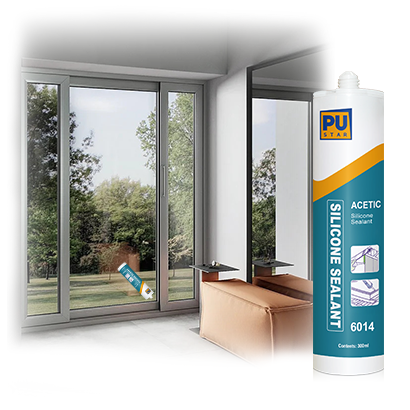
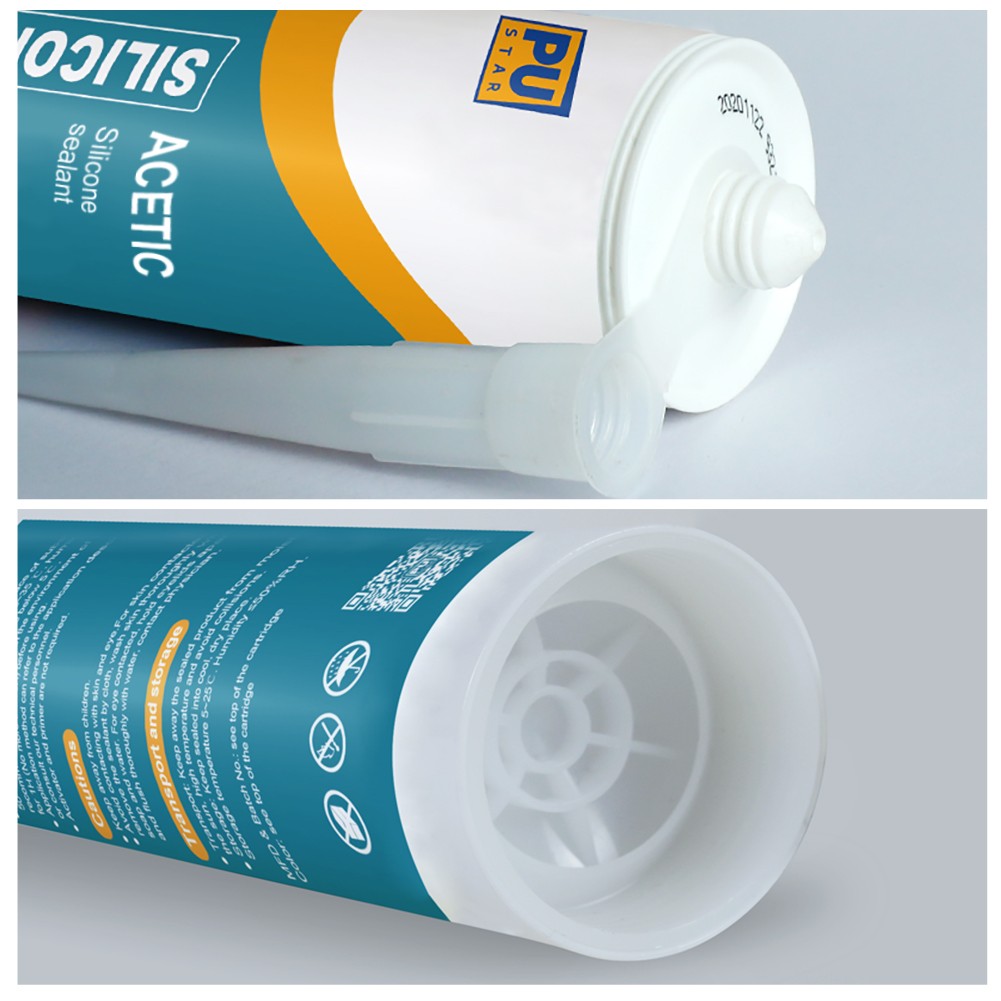
Areas of Application
Suitable for construction & home decoration.
Suitable for perimeter sealing around windowframes,architraves,etc;
Applicable to fish tank seal.
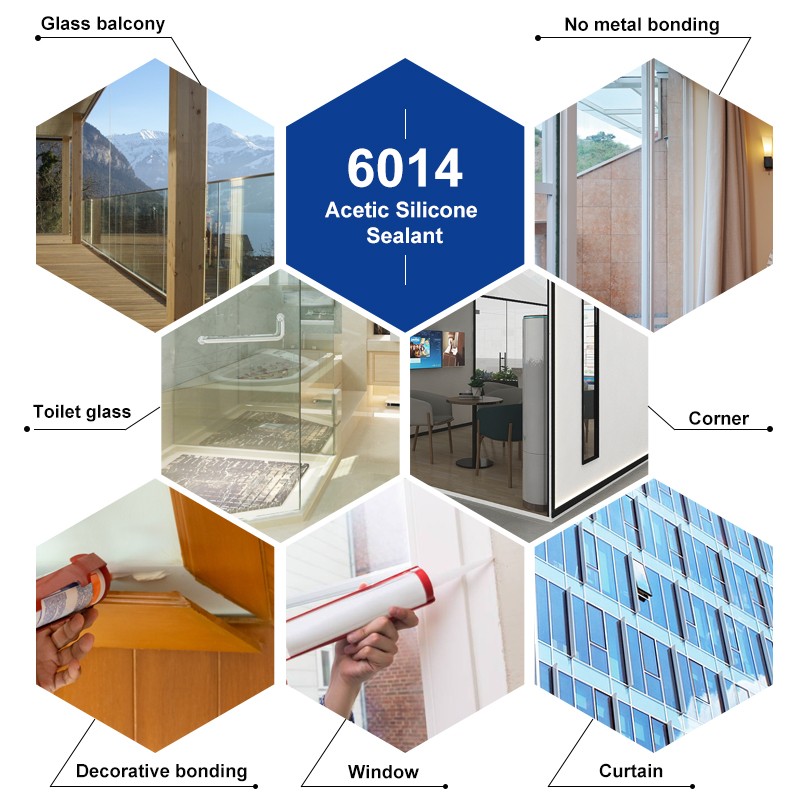
Specification
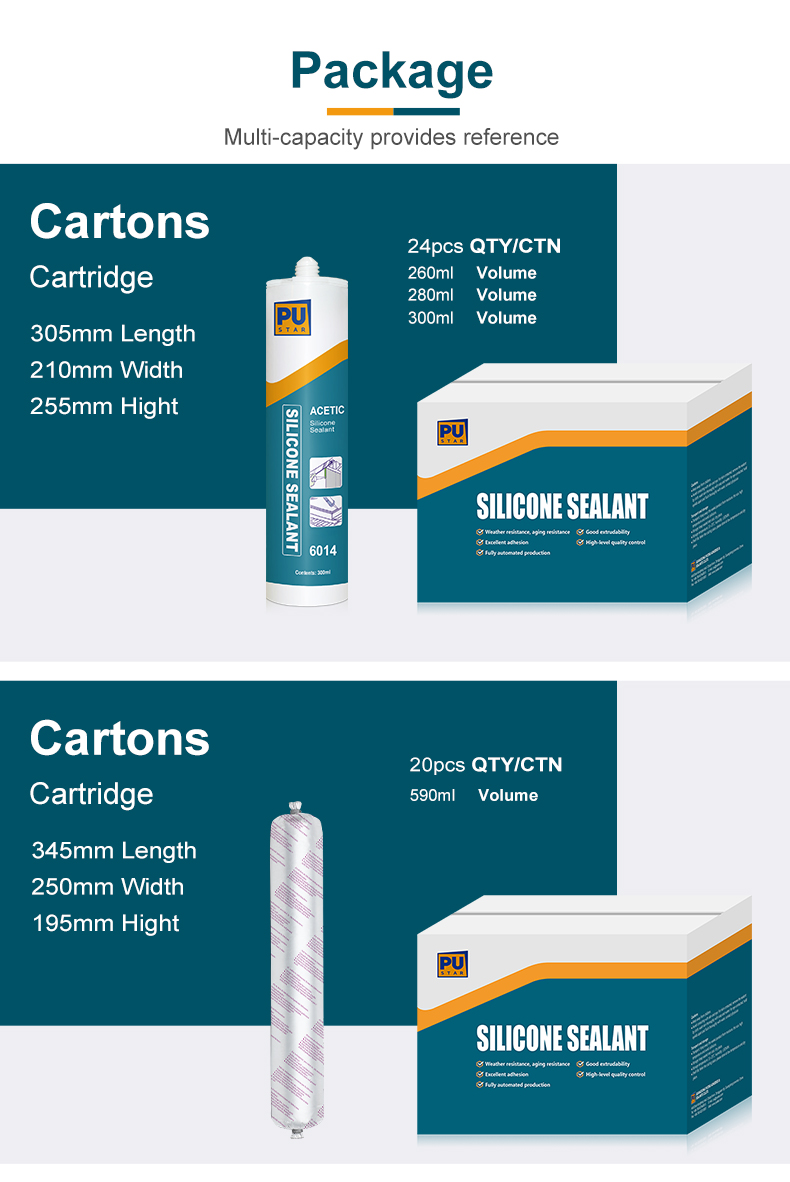
Packing
Plastic tube: 240ml / 260ml / 280ml / 300ml
Sausage: 590ml
Technical Data
| Technical Data® | 6014 | |
| Items | Standard | Typical Value |
| Appearance | Translucent, homogeneous paste | 1 |
| Density(g/cm3) GB/T 13477.2 |
0.94±0.10 | 0.94 |
| Sagging properties(mm) GBfT 13477.6 | ≤3 | 0 |
| Tack free time®(min) GB/T 13477.5 |
≤15 | 6 |
| Curing speed (mm/d) HG/T4363 | ≥2.0 | 2.5 |
| Shore A-hardness GB/T 531.1 |
15-25 | 19 |
| Tensile strength MPa GB/528 | ≥0.6 | 5.8 |
| Elongation at break % GB/T 528 | ≥500 | 550 |
①All data above were tested under standardized condition at 23±2°C, 50±5%RH.
②Value of tack free time would be affected by change of environmental temperature and humidity.
Other Details

 Guangdong Pustar Adhesives & Sealants Co., Ltd. is a professional manufacturer of polyurethane sealant and adhesive in China. The company integrates scientific research, production and sales. It not only has its own R&D technology center, but also cooperates with many universities to build a research and development application system.
Guangdong Pustar Adhesives & Sealants Co., Ltd. is a professional manufacturer of polyurethane sealant and adhesive in China. The company integrates scientific research, production and sales. It not only has its own R&D technology center, but also cooperates with many universities to build a research and development application system. 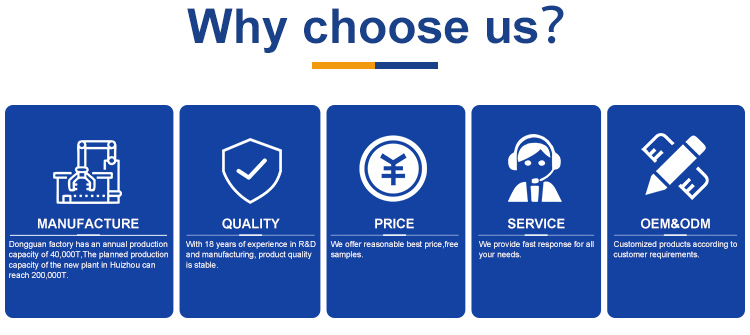 The self-owned brand “PUSTAR” polyurethane sealant has been highly praised by customers for its stable and excellent quality. In the second half of 2006, in response to changes in market demand, the company expanded the production line in Qingxi, Dongguan, and the annual production scale has reached more than 10,000 tons.
The self-owned brand “PUSTAR” polyurethane sealant has been highly praised by customers for its stable and excellent quality. In the second half of 2006, in response to changes in market demand, the company expanded the production line in Qingxi, Dongguan, and the annual production scale has reached more than 10,000 tons.  For a long time, there has been an irreconcilable contradiction between technical research and industrial production of polyurethane sealing materials, which has restricted the development of the industry. Even in the world, only a few companies can achieve large-scale production, but because of their super strong Adhesive and sealing performance, its market influence is gradually expanding, and the development of polyurethane sealant and adhesives surpassing traditional silicone sealants is the general trend.
For a long time, there has been an irreconcilable contradiction between technical research and industrial production of polyurethane sealing materials, which has restricted the development of the industry. Even in the world, only a few companies can achieve large-scale production, but because of their super strong Adhesive and sealing performance, its market influence is gradually expanding, and the development of polyurethane sealant and adhesives surpassing traditional silicone sealants is the general trend.  Following this trend, Pustar Company has pioneered the “anti-experiment” manufacturing method in the long-term research and development practice, opened up a new road to large-scale production, cooperated with a professional marketing team, and has spread all over the country and exported to the United States, Russia and Canada. And Europe, the application field is popular in automobile manufacturing, construction and industry.
Following this trend, Pustar Company has pioneered the “anti-experiment” manufacturing method in the long-term research and development practice, opened up a new road to large-scale production, cooperated with a professional marketing team, and has spread all over the country and exported to the United States, Russia and Canada. And Europe, the application field is popular in automobile manufacturing, construction and industry. 
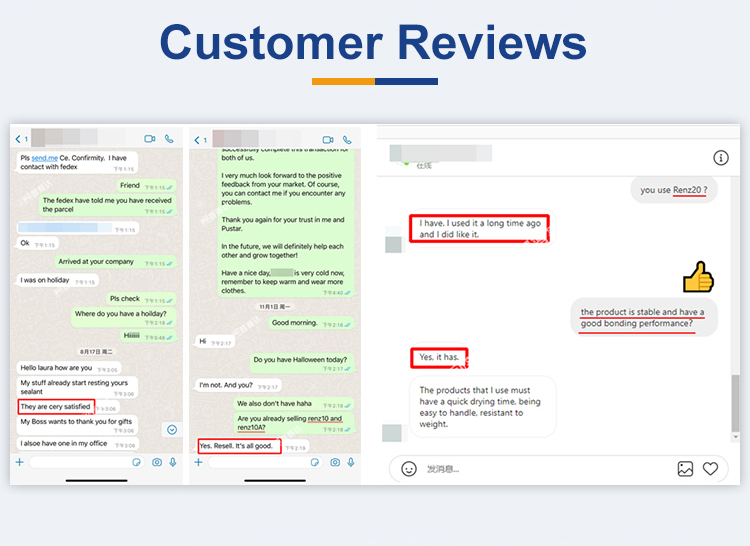
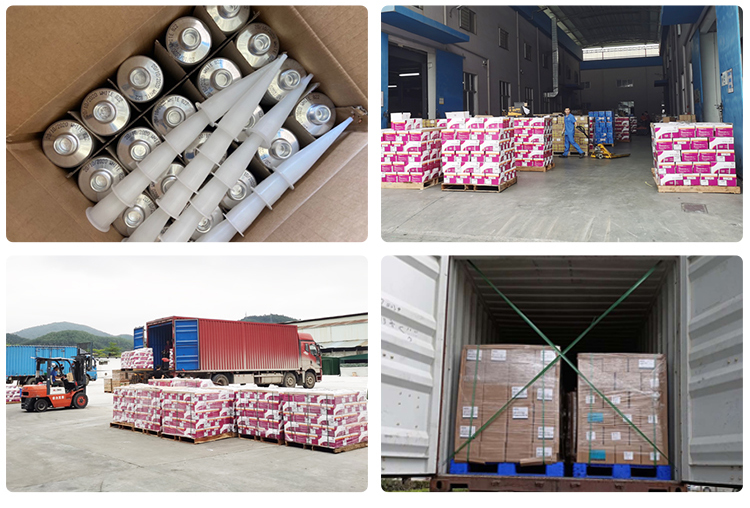
Hose sealant use steps
Expansion joint sizing process steps
Prepare construction tools: special glue gun ruler fine paper gloves spatula knife Clear glue utility knife brush rubber tip scissors liner
Clean the sticky base surface
Lay the padding material (polyethylene foam strip) to ensure that the depth of the padding is about 1 cm from the wall
Pasted paper to prevent sealant contamination of non-construction parts
Cut the nozzle crosswise with a knife
Cut the sealant opening
Into the glue nozzle and into the glue gun
The sealant is uniformly and continuously extruded from the nozzle of the glue gun. The glue gun should move evenly and slowly to ensure that the adhesive base is fully in contact with the sealant and prevent bubbles or holes from moving too fast
Apply clear glue to the scraper (easy to clean later) and modify the surface with the scraper before dry use
Tear off the paper
Hard tube sealant use steps
Poke the sealing bottle and cut the nozzle with proper diameter
Open the bottom of the sealant like a can
Screw the glue nozzle into the glue gun







